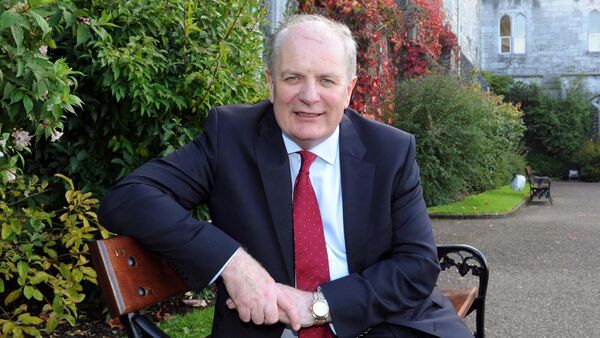Employees can look forward to 2022 delivering them greater work flexibility, universal legal entitlement to sick pay, and a 30c national minimum wage rise to €10.50 per hour.
On top of that, an update to the EU-led Protective Disclosure Act will give workplace whistleblowers a new legal shield. Volunteers, unpaid trainees, board members, shareholders and job applicants will have the same protection for their complaints and be entitled to feedback. This Act will also free whistleblowers of the burden of proof at the WRC and the courts. It will be the responsibility of the employer to prove that the complaint is false.
“These are a lot of changes and costs for employers to take on next year, particularly SMEs in Covid-impacted sectors like hospitality,” said Moira Grassick, managing director of Peninsula Ireland, a specialist employment law consultancy.
“It really is a lot for smaller employers to deal with on top of Covid. At the end of September, many people had returned to the office, and we thought we were all getting back to something more like normal, but that has changed again,” she said.
“January is an unknown. The flexible work option is something that many employees really want. There can be advantages in that also for the employer. Employers may even see worker protections for sick pay and disclosures as helping with their efforts to attract and retain talent.
“However, employers will also be looking at the cost implications, particularly given the challenges which Covid is presenting for them. Employers will definitely see all these changes as a double-edged sword.”
For employers, first up will be paying for the extra 30c per hour wage bill as the national minimum wage rises to €10.50 per hour.
“The employer will also be looking at the PRSI cost implications,” said Moira. “A lot of SMEs, in particular, have found it hard to cover the work-related costs around Covid.
“Of course, for customer-facing businesses like hospitality, who are currently struggling to find new talent, they may also see this increase as helping to make them more attractive to jobseekers. This increase may encourage people to get back to work.”
Moira says that many of the SMEs that turn to Peninsula Ireland for advice are in two minds about all these imminent legal changes for the workplace. They’re weighing up the benefits for workers with the costs the business will have to carry.
They’re reserving judgement for now. The sick pay entitlement is a tricky one. As it stands, employees in Ireland have no legal entitlement to sick pay. It is at the discretion of the employer to devise their own policy on this matter.
The new bill will mean that all employees will soon be entitled to 10 days or two weeks of sick pay each year. The benefit will begin once they have completed 13 weeks of consecutive service, whether in full-time or part-time employment.
This new benefit is on top of annual, parental, maternity, or paternity leave. Sick pay will be given at 70% of regular earnings up to €110 per day.
Employers, however, have been surprised by the proposal that a new employee should be entitled to statutory sick leave after just 13 weeks of service.
A public consultation found that the majority of respondents proposed that 6-12 months service should be required, and that sick pay should only apply after three or six days of absence.
“Managing that statutory sick leave requirement will definitely be challenging for smaller employers,” said Moira. “It will be high on their agenda from January onwards. This new bill may cause concern for some employers across Ireland. Whilst the phased introduction of the new scheme is welcomed, the new rules represent another cost for the employer to shoulder.
“Absenteeism already has a significant impact on the workplace due to lost productivity and the cost of covering an absent employee’s duties. Employers’ PRSI is already used to fund Illness benefits but now they have an additional cost that will not be easy to deal with.
“Employers may also be concerned with employees abusing the scheme and taking sick leave while they are fit to work. Requiring employees to provide a medical certificate to qualify for sick leave may help alleviate this concern.
“However, employees will have to pay for the medical document which could leave to staff taking longer off work to justify the cost.
“The intent behind statutory sick pay is a noble one but it seems clear that its practical application will lead to further difficulties for employers and employees throughout the country. I do think, however, that this change will be stalled.”
- PHOTO: Moira Grassick, managing director at Peninsula Ireland, specialist employment law consultancy.










